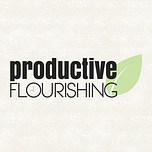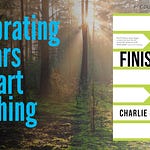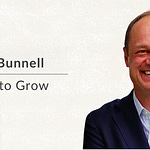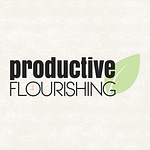Topics We Explored:
- and discuss what it means to live away from family when they are dealing with health challenges and medical issues.
Whether you are close or far from your relatives, you may have to be part of the healthcare journey of aging parents or grandparents.
Different ways to determine your values, how to work with other family members to come to decisions, and overcome shame and guilt around caretaking.
Links and Resources Mentioned in This Episode:
The Rise of the Creative Class, by Richard Florida
Who’s Your City, by Richard Florida
Thanks for Listening!
Subscribe to Productive Flourishing on Apple Podcasts to get all the latest episodes delivered straight to your preferred mobile device. This is the perfect option for listening to the show in the car, on the subway, or while you’re working out. Plus, you won’t have to fuss with figuring out how you’re going to listen.
Episode Timestamps
[3:30] - As we approach this conversation, it’s important to remember that every person’s relationship with their family is different, and their experience is going to be different. As you start making decisions about things related to family, you have to distinguish the fine line between your values, family values, and social pressures of “the way things should be.”
[4:55] - The context for Charlie and Angela’s family is that both their parents and Angela’s grandparents live in Arkansas, and now they live in Portland, Oregon, and it has created a barrier in time and distance.
[7:07] - For many creative people, it can be hard to find career opportunities where you’re from. Sometimes the place you’re from doesn’t resonate with you culturally, or allow you to be your most productive self. For Charlie and Angela, they’ve made the decision to stay in Portland for those reasons (and more), rather than packing up and moving closer to family.
[9:20] - Almost everyone is going to have to think about decisions related to family health at some point in time. Even if you’re in the same place as your parents or family, you may still be involved. But there is a whole new set of logistics that comes into play when you are not where your family is.
[11:25] - The thing Angela relies most on when determining whether an event is something she needs to be there for is her intuition - what felt right and what felt resonant in her heart. It wasn’t always the same as what her friends thought it would be or what society thought it would be.
[13:35] - Both Charlie and Angela have dealt with dementia in their family. For Charlie, it’s tricky because he wants to be there for everything, but on the other hand, he knows he can’t be there for everything. In addition to this, with dementia, his dad is not always present, even when he’s there, and too many people around can be too much in his dad’s situation.
[16:45] - Logical is not always what happens when it comes to our relationships with families. One of the best things we can do for ourselves and our families is to be able to have open and healthy conversations about what we’re able to do, what we want to do, and what we realistically can do in certain situations. Having this understanding is especially important in situations where maybe the family relationship isn’t the best, or there aren’t shared values.
[19:40] - It is important to try to get aligned on what outcome everyone wants. Everyone may have different ideas of how to get there, but it can help make the process easier to get everyone on the same page. You can set up different conditions and agree on them, and then get into the discussion of how best to achieve them.
[21:50] - Another important thing to remember is that everyone’s contribution may not look the same. Charlie talks about situations where maybe one person can’t be there, but could provide money or off-site planning to make things happen. Every contribution is important.
[23:28] - If you want a condition that’s different than the rest of your family, you have to be willing to be part of the solution to make it happen. If you’re in a situation where you can’t contribute time, energy, money, etc., you may not get as much say as someone who is able to be there and do the work.
[26:00] - If you are the sibling or child who is there, you may have to let go of being the martyr and ask for help or support. As the one who is with the family making the day-to-day decisions, asking for help and support can actually benefit the person you are caring for as well. Be careful not to close yourself off to people offering help as well. If you are a primary caregiver, it can be very valuable to have a therapist or a coach.
[33:15] - Guilt and shame are things many people wrestle with in these family situations. It is important to distinguish what is coming from yourself, versus what is coming from what other people think. Once you identify the source, figure out what it is that is not being manifested, and figure out what you can do to change the situation.
[37:37] - Identifying what is not in alignment for you (versus what other people think should be happening) is an important aspect of dealing with guilt and shame. Us developing as people is the constant awakening of ourselves - uncovering what our truths and values are.
[40:22] - As a caretaker, your life matters too. You make choices based on what will benefit everybody, including yourself. Put yourself in the mix of people and things that matter.
[42:15] - Whether you are the caretakee or the caretaker, Charlie is sending love. Do the best you can to take care of yourself and the people involved. At the end of the day, it’s really about the people.

















Share this post